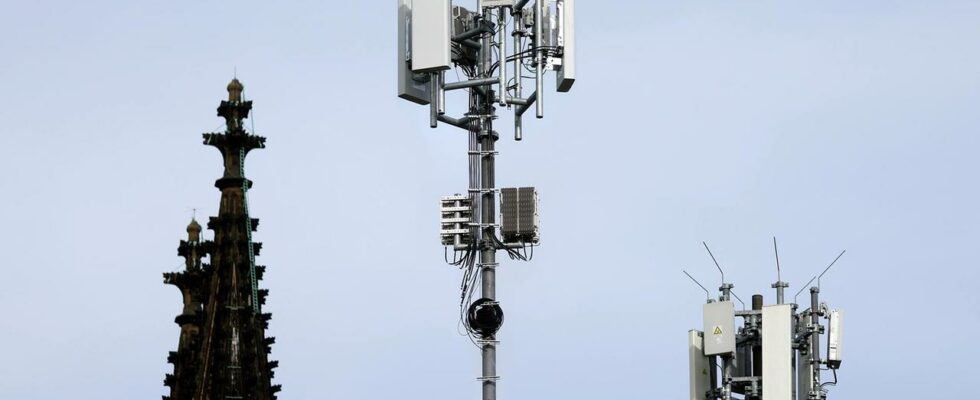faq
Germany’s cell phone networks should become more reliable. The Federal Network Agency wants to start with the expansion rules. Today the authority presents its draft. What does this mean for consumers? The most important questions and answers.
What is it about?
Every four to five years, the federal government auctions usage rights for various frequency bands that are fundamental to a good cell phone network. As a result, the federal government receives billions in revenue, in 2019 it was around 6.5 billion euros for around twenty years of use. At the first major auction in 2000 it was even more than 50 billion euros. The auction should actually take place again this year, because important frequencies will become available at the beginning of 2026. But the auction should now be canceled.
Instead, the usage rights will probably be extended by five years. In a few years there will be another auction in which other frequencies will be included. Network operators should only pay relatively low fees for extensions. Over five years that would be around 600 million euros in total. Compared to the 2019 auction costs, the fees are around a third lower.
Why is the federal government forgoing billions?
With Deutsche Telekom, O2 Telefónica and Vodafone there are three established network operators in Germany and 1&1 has recently become number four. The company from Montabaur is gradually building up its still very small cell phone network. She wanted to take part in an auction to secure additional frequency blocks. However, this time there will not be enough frequencies available to cover the needs of four companies instead of three.
Should an auction still take place, the top dogs warn of a loss of quality to the detriment of consumers. The established companies rejected the possibility of an exchange model in which other frequencies would be included and 1&1 could come into play. This is what the newcomer network operator 1&1 was hoping for.
Why are the regulations important for consumers?
If the usage rights are extended, the network operators must undertake to comply with requirements. In this way, the state wants to ensure that nationwide coverage gradually becomes a reality and that telecommunications companies do not just build where there is the most data traffic and where it is economically worthwhile. For example, network operators are obliged to cover all federal roads with 100 megabits per second by the end of 2024. The measurements are taken near the antenna and not on the smartphone itself.
The requirements for traffic routes apply to the industry as a whole: If one kilometer of federal highway is only covered by one network operator and the next kilometer by the other network operator, the expansion requirement is considered to have been met – even though a consumer is temporarily in a dead zone. After all, his smartphone only connects to one network and not to all of them.
This ability to be counted in the circulation catalog could no longer apply in the future, then every network would have to offer consistently good connections. That would be a big plus for consumers. The network agency also wants to improve supply in rural areas with a requirement that is specifically aimed at sparsely populated areas.
What are the sticking points?
The new network operator 1&1 would be left out of the extension of the usage rights. The authority is likely to use special rules to try to minimize the resulting disadvantage for the Internet company.
The second point of contention is the question of what will happen to telecommunications providers without their own cell phone network. Freenet and other small competitors insist on an obligation that network operators must allow them onto their network – that would be a so-called service provider obligation. The big top dogs are resisting this – they want to decide for themselves whether they want to accept Freenet and other companies as subtenants on their network or not.
What’s next?
Authority chief Müller will present a draft decision on Monday, which companies, associations and politicians can comment on in the coming months. The final decision should be made in the fall. Until then, changes are possible, but a radical change of course is considered unlikely. The next auction may be held in 2028. Then the federal government can expect billions in revenue again.

